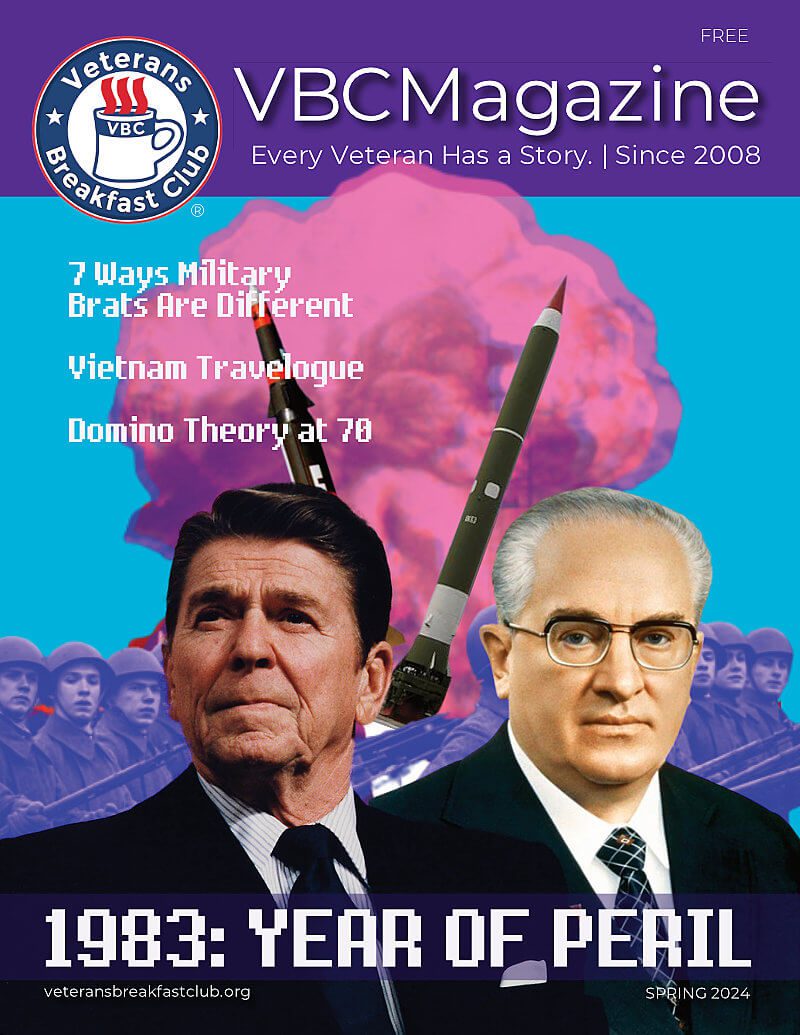VBC programs connect and heal,
educate and inspire.
Everyone is always welcome.
educate and inspire.
Everyone is always welcome.
The Veterans Breakfast Club (VBC) is the nation’s premier non-profit for connecting veterans with their fellow Americans through inspiring stories of service.
Our goal is to build a nation that understands and values the experiences of our military veterans so that every day is Veterans Day.
We do this by bringing together–in-person and online–men and women from all walks of life, all ages and eras, and every branch of service to talk about what they’ve seen and done. We want to hear how people’s military service has shaped them. “Every Veteran Has a Story” is our slogan. We want to hear every one.
We share the stories we hear in our weekly VBC Bulletin email newsletter and our quarterly VBC Magazine. We also record a weekly podcast, The Scuttlebutt, about military culture from the people who lived it.
We do all this because we believe the best way to thank a Veteran is to listen.
Listening is what the VBC has been doing for the past 15 years, when we held our first small event outside of Pittsburgh. Since then, we’ve held over 1,000 programs in-person and online and have welcomed over 20,000 different people at our events, Veterans and non-Veterans coming together to listen.
We value every veteran’s experience, no matter who they are or when or how they served. We’ve seen up close the power of storytelling, as the memories shared at VBC events connect, heal, educate, and inspire an ever-expanding circle of listeners.
At any given event, you might hear from the newest members of Space Force to a 101-year-old World War II veteran.
We’ve welcomed Tin Can Sailors and Montford Point Marines, Vietnam Sky Soldiers and Cold War intelligence officers. We’ve heard stories from the Horn of Africa to Antarctica, the Bering Sea to Diego Garcia, and all points in between.
LORAN Coast Guardsmen and Radar Station Airmen have told us about serving in some of the most remote places on earth.
Korean War veterans have borne witness to their “forgotten war.”
Other “forgotten warriors” shared their memories of Beirut, Grenada, and Mogadishu.
Some of the first women authorized for combat shared stories of fighting in Iraq and Afghanistan, and of the Purple Hearts they received.
Join us at our events and help keep these stories alive.
All you need to do is listen.
UPCOMING EVENTS
PAST EVENTS
GET INVOLVED TODAY
The mission of the Veterans Breakfast Club is to create communities of listening around veterans and their stories to ensure that this living history will never be forgotten. We believe that through our work, people will be connected, educated, healed, and inspired.
INTRODUCING THE VETERANS HISTORY PROJECT
Preserving veterans’ stories so that this living history is never forgotten.
We pair passionate VBC volunteers with military veterans for one-on-one oral history interviews over Zoom. If you are a veteran, or you know a veteran, who would be interested in sharing his or her story with us, let us know. If you are someone interested in conducting these interviews, please reach out!
Latest Blog Posts





























